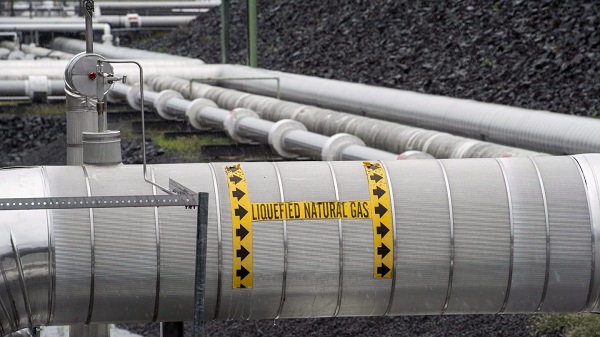National
British Columbia quickly shoots down bill to ban men from competing in women’s sports

From LifeSiteNews
‘There are inherent differences between males and females, ranging from chromosomal and hormonal differences to physiological differences,’ bill author and B.C. Conservative leader John Rustad said.
The provincial legislature of British Columbia quickly voted down a Conservative bill seeking to prohibit men who believe themselves to be women from participating in women’s sports.
On April 30, British Columbia Members of the Legislative Assembly (MLAs) voted 51 to 27 against B.C. Conservative leader John Rustad’s bill to protect women from having to compete against men in sports.
“I’m proud to say before this House, the amazing women and girls who are here with us today, that this piece of legislation is not only the first of its kind in Canada, but it was an entirely female-led initiative from start to finish,” Rustad told the assembly.
“The bill was written by women and girls for women and girls,” he added.
Bill M214, the Fairness for Women’s and Girl’s Sports Act, would have mandated that all publicly-funded sports and athletic teams, events and tournaments be classified by sex.
“Participation in a sporting team or event must be limited to individuals of the biological sex that corresponds to the sex classification of the sporting team or event,” the bill said.
The bill provided an exception to allow women to participate in men’s sports, but men were banned from competing in women’s sports. The bill offered a provision for male and female players to play together in a co-ed league or event.
“There are inherent differences between males and females, ranging from chromosomal and hormonal differences to physiological differences,” Rustad explained.
“But more than the obvious differences, over time, women and girls have struggled to be identified as a person,” he stated. “They have struggled to have the right to vote. They have struggled to be allowed to be in certain places, and they have struggled to be paid fairly.”
“And here today in 2024 in this Legislature, the necessity to move forward the bill is to make sure that once again, women are treated fairly,” he appealed.
Rustad argued that sex-separated sports are “vital in order to maintain the fairness for women and girls’ athletic opportunities in British Columbia.”
“I would urge all members of this House to vote in support of this legislation because we all deserve to live our lives with integrity,” he declared.
However, the bill was quickly shut down in its first reading, with the ruling New Democratic Party (NDP) voting against the initiative.
The vote was met with dismay by many Canadians, including female powerlifter April Hutchinson, who is known for speaking out against men dominating women’s sports.
“Here is the complete list of members who voted for and against The Fairness in Women’s & Girls sports Act,” she posted on X, formerly known as Twitter.
“British Columbia residents! Ask your MLA why they voted against protecting women and girls and hold them @bcndp accountable,” she encouraged.
Here is the complete list of members who voted for and against The Fairness in Women's & Girls sports Act.
British Columbia residents! Ask your MLA why they voted against protecting women and girls and hold them @bcndp accountable. Again, a huge thanks to @JohnRustad4BC and the… pic.twitter.com/QPlpMAZT8V— April Hutchinson (@Lea_Christina4) May 1, 2024
“Again, a huge thanks to @JohnRustad4BC and the @Conservative_BC who displayed great courage respect and integrity today,” she declared.
Rustad’s initiative is similar to legislation the neighboring province of Alberta has promised to pass which also seeks to bar men from women’s sports.
Regardless of the claims of LGBT activists, studies continue to back up the common sense reality that males hold a massive advantage over women in athletic competitions. A recent study published in Sports Medicine found that even a year of cross-sex hormones results in “very modest changes” in the inherent strength advantages of men.
Canadian Energy Centre
First Nations in Manitoba pushing for LNG exports from Hudson’s Bay

From the Canadian Energy Centre
By Will Gibson
NeeStaNan project would use port location selected by Canadian government more than 100 years ago
Building a port on Hudson’s Bay to ship natural resources harvested across Western Canada to the world has been a long-held dream of Canadian politicians, starting with Sir Wilfred Laurier.
Since 1931, a small deepwater port has operated at Churchill, Manitoba, primarily shipping grain but more recently expanding handling of critical minerals and fertilizers.
A group of 11 First Nations in Manitoba plans to build an additional industrial terminal nearby at Port Nelson to ship liquefied natural gas (LNG) to Europe and potash to Brazil.
Robyn Lore, a director with project backer NeeStaNan, which is Cree for “all of us,” said it makes more sense to ship Canadian LNG to Europe from an Arctic port than it does to send Canadian natural gas all the way to the U.S. Gulf Coast to be exported as LNG to the same place – which is happening today.
“There is absolutely a business case for sending our LNG directly to European markets rather than sending our natural gas down to the Gulf Coast and having them liquefy it and ship it over,” Lore said. “It’s in Canada’s interest to do this.”
Over 100 years ago, the Port Nelson location at the south end of Hudson’s Bay on the Nelson River was the first to be considered for a Canadian Arctic port.
In 1912, a Port Nelson project was selected to proceed rather than a port at Churchill, about 280 kilometres north.
The Port Nelson site was earmarked by federal government engineers as the most cost-effective location for a terminal to ship Canadian resources overseas.
Construction started but was marred by building challenges due to violent winter storms that beached supply ships and badly damaged the dredge used to deepen the waters around the port.
By 1918, the project was abandoned.
In the 1920s, Prime Minister William Lyon MacKenzie King chose Churchill as the new location for a port on Hudson’s Bay, where it was built and continues to operate today between late July and early November when it is not iced in.
Lore sees using modern technology at Port Nelson including dredging or extending a floating wharf to overcome the challenges that stopped the project from proceeding more than a century ago.
He said natural gas could travel to the terminal through a 1,000-kilometre spur line off TC Energy’s Canadian Mainline by using Manitoba Hydro’s existing right of way.
A second option proposes shipping natural gas through Pembina Pipeline’s Alliance system to Regina, where it could be liquefied and shipped by rail to Port Nelson.
The original rail bed to Port Nelson still exists, and about 150 kilometers of track would have to be laid to reach the proposed site, Lore said.
“Our vision is for a rail line that can handle 150-car trains with loads of 120 tonnes per car running at 80 kilometers per hour. That’s doable on the line from Amery to Port Nelson. It makes the economics work for shippers,” said Lore.
Port Nelson could be used around the year because saltwater ice is easier to break through using modern icebreakers than freshwater ice that impacts Churchill between November and May.
Lore, however, is quick to quell the notion NeeStaNan is competing against the existing port.
“We want our project to proceed on its merits and collaborate with other ports for greater efficiency,” he said.
“It makes sense for Manitoba, and it makes sense for Canada, even more than it did for Laurier more than 100 years ago.”
2025 Federal Election
Allegations of ethical misconduct by the Prime Minister and Government of Canada during the current federal election campaign

 Preston Manning
Preston Manning
A letter to the Ethics Commissioner sent April 9th, 2025
On April 4, 2025, during the current federal election period, in which employees of the Canadian Broadcasting Corporation (CBC) report on all aspects of the election, the unelected Prime Minister, without any consultation with or authorization by parliament but apparently with the concurrence of the Minister of Heritage, promised an increase of $150 million in the budget of the CBC on top of its $1.38 billion budget for the current fiscal year.
The CBC consistently and for obvious reasons tends to share the ideological orientation of the governing Liberal Party and its political allies, and supports many of their policy positions. It tends to ignore or oppose those of the Conservative Official Opposition which proposes dismantling the CBC.
The unelected Liberal Prime Minister promising a $150 million bonus to the CBC in the middle of an election campaign would thus strike any objective observer as unethical, damaging to public confidence in our democratic institutions, and deserving of investigation and commentary by your office.
In particular, it is respectfully requested that you address the following questions:
1. Has the Prime Minister acted unethically by promising the state owned broadcasting corporation, sympathetic to the governing party, a $150 million increase in its budget, during a federal election campaign?
2. Is the promise of a $150 million increase in the budget of the CBC, during an election period in which the CBC is expected to give objective coverage to the campaign, in effect a defacto bribe and contrary to the spirit and the letter of the Conflict of Interest Code and Act?
In addition, on April 7, 2025, again during the current election period, the Prime Minister has announced that the federal government will distribute approximately $4 billion in carbon rebate payments directly to approximately 13 million Canadians, many of whom are eligible voters, and will do so prior to the election day of April 28.
This naturally raises the following questions which it is again respectfully requested that you address:
3. Has the Prime Minister and the federal government acted unethically by authorizing the distribution, prior to election day, of almost $4 billion in rebate payments to approximately 13 million Canadians, many of whom are voters, and doing so with the suspected intent of winning the support of those voters?
4. Is the promise and delivery, prior to election day, of almost $4 billion in rebate payments to approximately 13 million Canadians, many of whom are voters, in effect a defacto attempt to bribe those voters with their own money, and contrary to the spirit and the letter of the Conflict of Interest Code and Act?
To assist in the consideration of these allegations, suppose the UN were to ask Canada to supervise a national election in a third world country where democracy is frail and elections subject to abuse by those in authority. Suppose further that the unelected president of that country, during the election campaign period, endeavored to secure:
· The support of the state broadcasting corporation by promising it a huge increase in its budget, and,
· The support of millions of voters by ensuring that they received a generous personal payment from his government just prior to election day.
In such a situation, would not the Canadian monitoring authority be obliged to strongly censure such behaviors and report to the UN that such behavior calls into question the democratic legitimacy of the election subjected to such abuses?
If we as Canadians would consider such political behaviors anti-democratic and unacceptable if practiced in a foreign country, ought we not to come to the same conclusion even more quickly and certainly when they are regrettably practiced in our own?
Please respond to questions 1-4 above prior to April 25, 2025 and please ensure that your responses are made public prior to that date.
Thanking you for your service and your commitment to safeguarding public confidence in Canada’s democratic institutions and processes.
Your sincerely,
Preston Manning PC CC AOE
-

 espionage23 hours ago
espionage23 hours agoEx-NYPD Cop Jailed in Beijing’s Transnational Repatriation Plot, Canada Remains Soft Target
-

 Business1 day ago
Business1 day agoDOGE Is Ending The ‘Eternal Life’ Of Government
-

 2025 Federal Election2 days ago
2025 Federal Election2 days agoRCMP Whistleblowers Accuse Members of Mark Carney’s Inner Circle of Security Breaches and Surveillance
-

 2025 Federal Election2 days ago
2025 Federal Election2 days agoNeil Young + Carney / Freedom Bros
-

 2025 Federal Election1 day ago
2025 Federal Election1 day agoTucker Carlson Interviews Maxime Bernier: Trump’s Tariffs, Mass Immigration, and the Oncoming Canadian Revolution
-

 2025 Federal Election1 day ago
2025 Federal Election1 day agoCanada drops retaliatory tariffs on automakers, pauses other tariffs
-

 2025 Federal Election2 days ago
2025 Federal Election2 days agoBureau Exclusive: Chinese Election Interference Network Tied to Senate Breach Investigation
-

 Autism2 days ago
Autism2 days agoRFK Jr. Exposes a Chilling New Autism Reality










